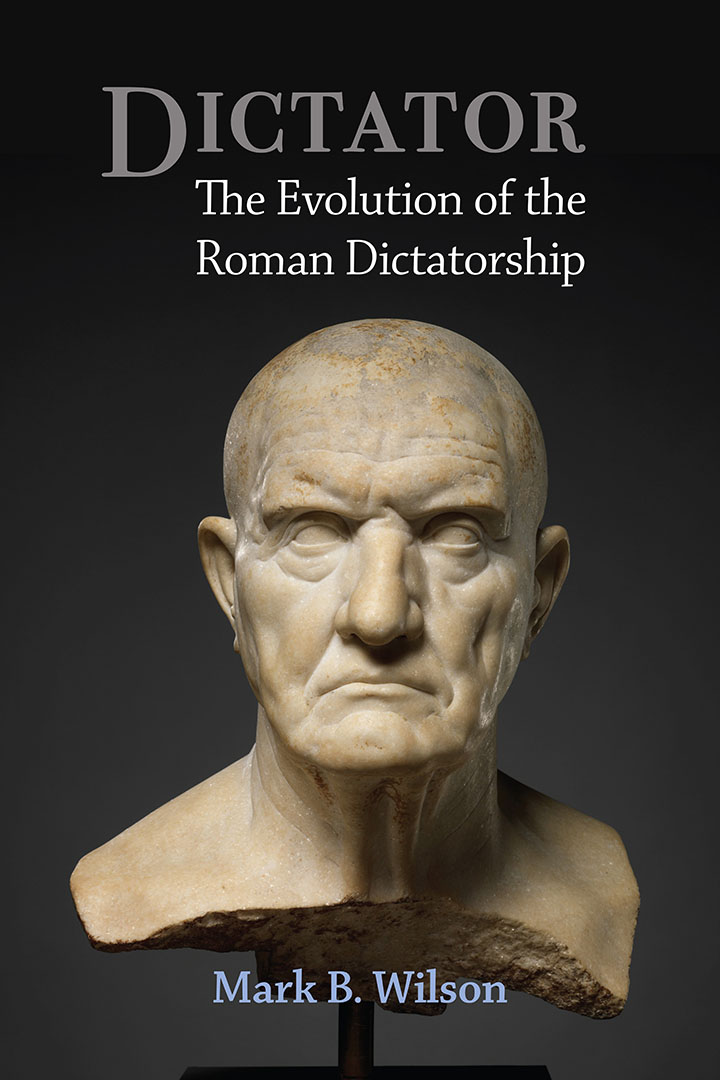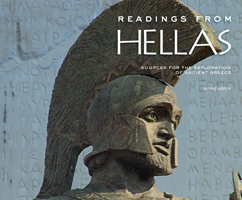Publications

Dictator:
The Evolution of the Roman Dictatorship
Mark B. Wilson
The role and development of the Roman dictatorship over three centuries
Publisher's Description Roman consuls were routinely trained by background and experience to handle the usual problems of a twelve-month turn in office. But what if a crisis arose that wasn’t best met by whoever happened to be in office that year? The Romans had a mechanism for that: the dictatorship, an alternative emergency executive post that granted total, unanswerable power to that man who was best suited to resolve the crisis and then stand down, restoring normality. This office was so useful and effective that it was invoked at least 85 times across three centuries against every kind of serious problem, from conspiracies and insurgencies to the repelling of invaders to propitiation of the gods.
In Dictator: The Evolution of the Roman Dictatorship, Mark B. Wilson makes the first detailed and comprehensive examination of the role and evolution of the dictatorship as an integral element of the Roman Republic. Each stage of a dictatorship—need, call, choice, invocation, mandate, imperium, answerability, colleague, and renunciation—is explored, with examples and case studies illustrating the dictators’ rigorous adherence to a set of core principles, or, in rare cases of deviation, showing how exceptions tended to demonstrate the rule as vividly as instances. Wilson also charts the flexibility of the dictatorship as it adapted to the needs of the Republic, reshaping its role in relation to the consuls, the senate, and the people.
The routine use of the dictatorship is only part of the story. The abandonment and disuse of the dictatorship for 120 years, its revival under Sulla, and its appropriation and transformation under Caesar are all examined in detail, with attention paid to what the dictatorship meant to the Romans of the late Republic, alternative means of crisis resolution in contrast with the dictatorship, and the groundwork laid in in those last two centuries for that which was to come. Dictator provides a new basis for discussion and debate relating to the Roman dictatorship, Roman crisis management, and the systems and institutions of the Roman Republic.
6 x 9. 472pp. 1 illustration, 3 tables. 2021 (September). Hardcover (978-0-472-13266-9), $85.00 U.S; Ebook (978-0-472-12920-1).
“In conclusion, Wilson’s book is a thorough and well-informed study of the Roman dictatorship. Quite every aspect of the office is treated and the collection of ancient sources is impressive…he has doubtless provided every scholar interested in the study of this magistracy with an important and compelling work.”
—Bryn Mawr Classical Review
Publisher: University of Michigan Press. Amazon Link.

De Roma
Excerpts from Ancient Writers About Rome (2013) A selection of 74 useful excerpts from primary sources covering the history of the Roman republic and empire, evoking the essential nature of what it meant to be Roman and the constant transformations that took Rome from obscurity to universality.

Readings from Hellas
Sources for the Exploration of Ancient Greece (2013) This compilation of classical sources about ancient Greece covers the Aegean world from Homer up through the Roman era, with excerpts from poets, playwrights, philosophers, statesmen, historians, generals, and scholars—all geared toward exploring the nature and evolution of the Greek idea.

Writing a Position Paper
Effective Research Essays for History Students (2012) A concise, step-by-step guide to writing a position paper that convinces, using evidence and analysis.